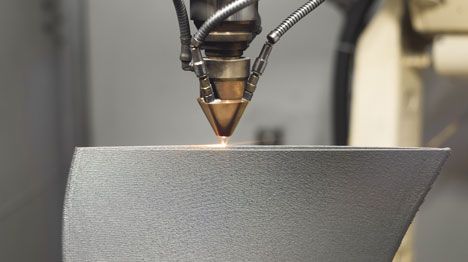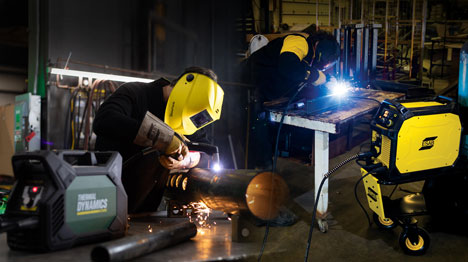Attracting Millennials to Safety Jobs in Manufacturing
A look at what it takes to entice, retain and engage younger workers.
A look at what it takes to entice, retain and engage younger workers.
As many as 2 million manufacturing jobs may go unfilled by 2025.
Manufacturing can be more appealing to a younger generation, who may have different values.
Here are some strategies to attract and retain young talent in your workplace.
A look at what it takes to entice, retain and engage younger workers.
One of the biggest hurdles within manufacturing today is the ability to attract and retain young, eager and talented workers. Despite U.S. unemployment hovering around 5 percent, the Manufacturing Institute estimates that 2 million manufacturing jobs will go unfilled by 2025.
Baby boomers—with their expertise and years of industry knowledge—are retiring. On top of that, millennials, those born in 1981–97 and who now constitute the country’s largest generation, are not choosing to enter manufacturing. And that includes the safety field**.**
Here are suggestions on how to build excitement about the industry and show younger people how to capitalize on the various opportunities for career and personal growth.
Get the word out. Part of the problem is that manufacturing as a whole suffers from a lack of good PR. To make manufacturing more attractive, those in the profession need to work harder to educate students about the industry and how they can be a part of it. As budgets get cut in high schools and shop classes go to the wayside, students are getting less exposure to what manufacturing is all about.
Build a thriving company culture. Offer classes, sessions with a life coach, free kombucha, or ways in which employees can explore their creativity within technology and advanced manufacturing processes. Start thinking of your company culture as a brand by paying special attention to your social media footprint.
Attract the best of the best. Younger workers may be open to taking a job because of how it makes them feel rather than because of the pay and benefits. Be receptive to change and allow them to pitch ideas so that they know the company values them. It will likely lead to positive, continued performance.
Discover what’s important to younger employees. Even though younger workers should be seen as individuals, their trending behavior cannot be ignored. They have a desire to experience an alignment between their values and that of their employer, which includes corporate social responsibility and the chance to make a difference in the industry or around the world. Let your younger workers know that you are a human organization by making them aware of what your company is doing in the vein of sustainability or working with charitable organizations like United Way and YouthBuild.
Give them frequent feedback. Understanding the way millennials think is a big part of working with them on the job. They are a group pegged as the communicative and collaborative generation. It’s important to provide ongoing commentary about their job performance and in general, frequent, relevant engagement. When this generation posts on social media, within minutes there can be 50 signs of approval from followers. When that amount of approval and recognition doesn’t come in the corporate setting, it can be discouraging—the once-a-year performance review doesn’t cut it anymore.
Invest in talented millennials. Gaining loyalty from younger employees requires more than occasional, passing conversation. They need to know their managers care, but, more than anything, they need to know there are opportunities for career growth. This includes options for ongoing education accessible within both a traditional classroom and online. Also, as you implement new technologies in your company, consider having younger employees lead the charge and help develop and refine solutions. This can have a tremendously positive impact as knowledge transfers from younger employees to senior ones, building camaraderie in your organization.
Special thanks to M.L. Peck, senior vice president at the Institute for Supply Management, which, with ThomasNet, sponsors the 30 Under 30 Rising Supply Chain Stars Recognition Program; Ben Coleates, manager of training and development for sales and marketing at Norton Abrasives; and Christine Hassler, a life coach, millennial expert and corporate speaker, for contributing to this article.
Manufacturing suffers from a lack of good PR.
Millennials typically are attracted to a thriving company culture that includes a substantive social media footprint.
Constant feedback, acknowledgment of their passion points and the opportunity to contribute are key to managing younger workers.
What have you done to motivate and attract younger workers in your workplace?




